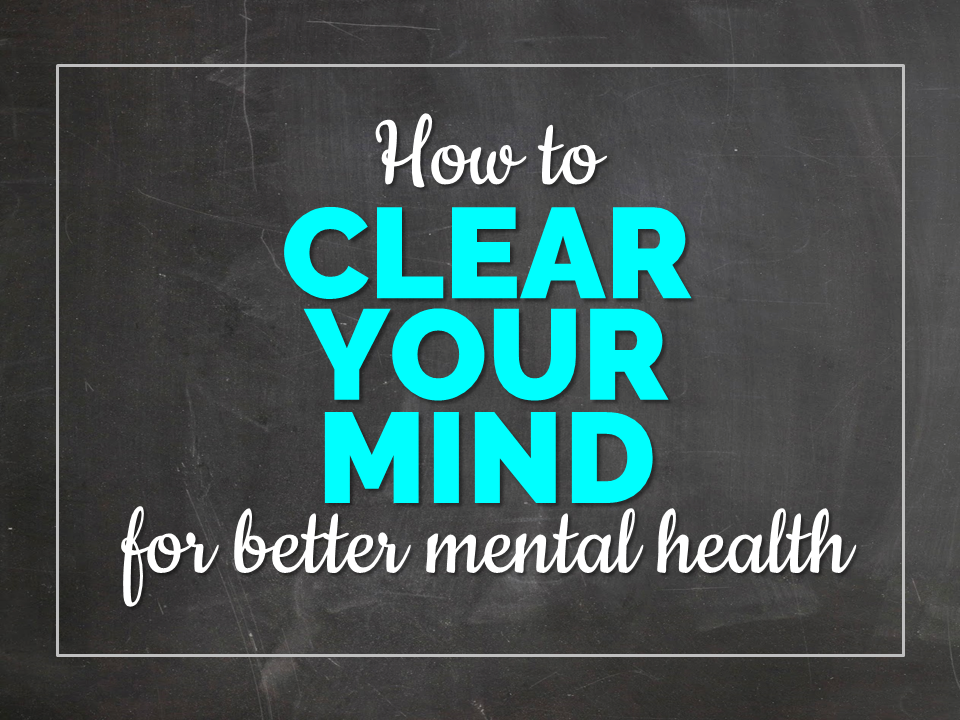So, earlier this week I talked about why clearing your mind is important.
Basically, learning to clear you mind can keep you mentally healthy and focused.
Because if chaos reigns, eventually melt downs and burn outs will occur.
In this time, where distractions are everywhere, mental health issues have become the biggest threat to our happiness, and in fact, to our survival.
Our minds are largely unfocused, and therefore predisposed to conditions like high anxiety and depression.
We’re directly, and at all times, plugged into work, friends, family, and the world at large.
If we feel even the least bit “bad” we reach for food, alcohol, drugs, Netflix, and more.
Which leads to a host of other issues – physical and mental.
The truth is, none of us are immune to mental health issues.
It’s something I think we all have to take seriously for ourselves, as we grow older, and for those we love and care about.
So, what can you do?
Be selfish.
Take time to focus on yourself.
And learn the skill of clearing your mind.
Thoughts versus Thinking
It’s estimated that about 60,000 thoughts a day go through your mind.
And most of those thoughts are subconscious and therefore, repetitive and familiar.
But these thoughts are not THINKING.
You don’t have to THINK these thoughts because they’re automatic.
They’ve been programmed over a lifetime of listening, learning, and experiencing.
And because there’s a constant stream of them, all day long, it can feel like your mind doesn’t get a break.
THINKING is what you do consciously, like when you’re trying to solve a problem.
We don’t spend much time actually THINKING.
So, it can’t be the reason for our overwhelm or mental exhaustion.
Overwhelm and exhaustion happen because you’re paying attention to the constant stream of thoughts consistently.
Clearing your mind is about interrupting that stream.
It’s like building a dam to control the flooding (overwhelm), and generate energy (for creative problem solving, or actual THINKING.)
When you learn how to build the dam, you gain control of your life.
How to clear your mind
About twenty years ago, I could see myself falling into a familiar pattern.
I had two kids, the youngest was just a newborn, and we had just bought a home, my mom had passed away not long before, and things were rocky in my relationship.
I could feel myself getting very anxious.
It was like I was on shaky ground, everything felt in transition, and I just wanted some stability.
My sleep was terrible, my stomach my in constant knots, and I was losing weight.
All familiar symptoms of high anxiety for me.
Symptoms that landed me in the hospital more than once in my childhood.
At that time, I’d get up in the wee hours of the morning to breastfeed my youngest daughter.
While sitting in the den, I’d have the tv on, and, with little selection of channels at that hour, I’d watch PBS.
That’s where I was first introduced to Dr. Wayne Dyer and the idea that I could choose my thoughts.
Not only that, but I could also stop the constant stream of automatic thoughts.
And those automatic thoughts, which I felt were factual, didn’t have to dictate my life.
Up until then, it felt like my life was run from anxiety and guilt.
So, understanding the idea that I could be in control, literally freed me.
And over time, with practice, I learned to let go of anxiety.
At that time, the practice of clearing my mind took the form of a meditation technique called Japa.
So, I’d sit for a few minutes, and repeat a mantra, imagining the words in my head and the spaces between the words and letters.
Sounds weird, but it worked.
For short periods of time, I became able to sit without paying too much attention to the constant banner of thoughts my subconscious mind was waving around.
It was kind of a miracle.
I didn’t know that this peaceful place existed in my own mind.
Now, although I don’t practice Japa meditation anymore, I’ve found other ways that work for me.
Guided meditation, walks outside, and journaling are the best for me.
So, I’ll tell you a little bit about these methods.
Meditating
You might resist this word.
But all it means is to direct your mind to a clear, calm state.
And meditation is one of the most ancient ways to do this.
All you need to do is sit, or lie down, and relax.
Focus on your breathing, or on an object like a candle flame or flower.
Then for a pre-determined amount of time, just be there.
It can be one minute or one hour.
The time isn’t as important as the act of just being there, present.
You can use a guiding voice for this, especially if you’re finding it tough at first.
I love guided meditations from Headspace and Calm, but there are all kinds out there.
Walking outdoors
It’s fall here in the northern hemisphere, so the weather is pretty ideal for walking.
So, get out there and begin.
It doesn’t have to be in the forest, or a special path.
It can just be in your own neighborhood.
What’s important is that you’re present in your surroundings, in your body.
So, if you walk and listen to a podcast or talk on the phone, you probably won’t get the mental health benefit.
But if you walk, taking in the smells, sights, and sounds, you’ll be much more present and therefore more likely to reap the mental health rewards.
We are made to live in the natural world.
Walking outdoors connects us with this deep need and puts our bodies and minds in a much more harmonious state.
Journaling
Writing is a way to physically represent your thoughts.
And so writing thoughts down lifts the burden from our minds.
We get the thoughts out.
And no longer have to dwell on them.
We can also objectively see our thoughts and decide if we want to continue thinking them.
Are they useful?
Or are they useless?
You get to choose: Keep or throw away.
Journaling can actually lead to a purging of old, outdated thoughts that may have been holding you back for decades.
Journaling can also help you create new thoughts.
What do you want to think?
Yes, you can choose.
You are in control
Because of the fast-paced world around you, it can feel like life is out of control.
But clearing your mind regularly reassures you that you are in charge of you.
Even though so much is not within your control.
Your thoughts, feelings, and actions ARE always in your control.
No matter where you find yourself in life.
Believe in that power, and practice it.
Then notice how everything changes.
Kee moving forward
Debbie
P.S. Need some guidance as you create a healthier mind and body? I’m here to help. Ready? Contact me for a free consultation.
Email me, message me, or book a time to talk through Zoom.


